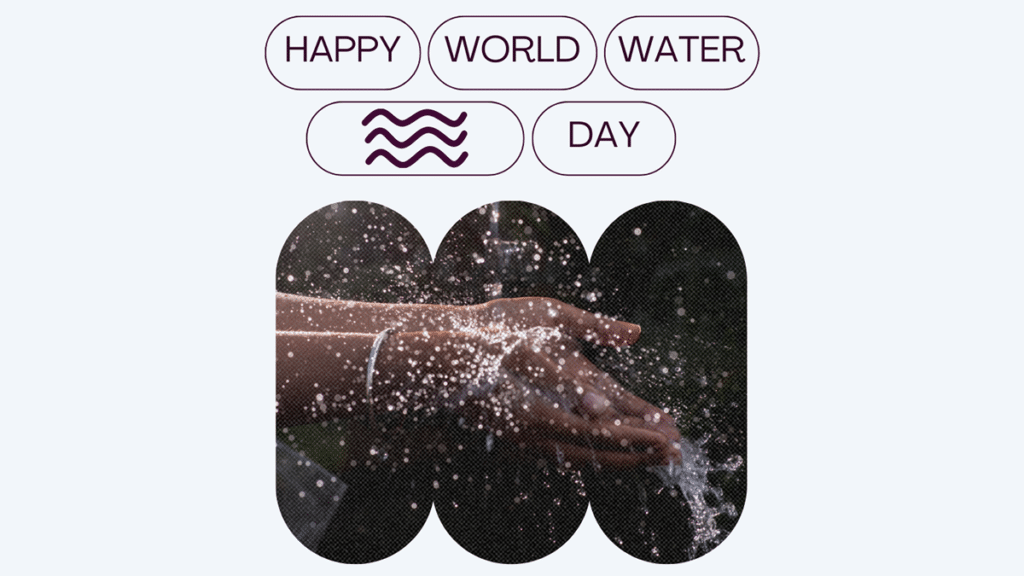Happy World Water Day

In this update:
Equitable access to clean and safe water is a human right.
As we observe World Water Day on March 22nd, we witness the consistent erosion of this right both here in the United States and throughout the world. Report upon report confirms an alarming relationship between race and water quality, affordability and access; issues that intensify with the climate crisis. Essential to life, Black Americans face more water-related health and economic issues as result of racist and exploitative policies and practices. Black frontline communities need clean water policy now. While there is a lot of work to do, this policy brief highlights key policies and inspiration.
With the Clean Water Act of 1972, the federal government set policy and regulatory precedent that has enabled clean water legislation for decades. Recently, states have begun passing strong water equity bills too, such as Pennsylvania’s Right to Clean Air and Water.Through policy and case law, Pennsylvania has protected its citizens’ right to clean air and water and access to public natural resources, as well as empowering local governments to engage in regulating the oil and gas industry (See Robinson Twp. v. Commonwealth, 83 A.3d 901, 2013).
While federal and state governments and agencies must bear much of the financial burden and some of the regulatory burden of clean water and sanitation infrastructure, Black frontline community leaders can make critical and immediate impacts at the level of local policy. For example, community leaders in Baltimore passed the “Water Accountability and Equity Act (WAEA)” in 2019, which established an Office of Water-Customer Advocacy, caps water bills for low-income households based on water-affordability standards and extends rights and protections to tenants, not just homeowners. Local communities, especially Black frontline and fenceline communities, have brilliantly maneuvered their needs and know them best. Given opportunities and resources, their expertise, experiences, talents, and gifts can be empowered toward systems change.
Movement for Black Lives’ Black Hive Climate Pillars points out that “[a]s new conditions are created by global temperature shifts and rising populations; we must ensure our human right to clean water and sanitation. ”(Black Hibe website) Additionally, the American Public Health Association’s Water and Health Equity Factsheet observes that “[l]ack of coordination, out-of-date or inadequate policies and regulations and limited funding devoted to water infrastructure, workforce development, and retention provide challenges [for] children, older adults, communities of color and low-income communities [who] bear a higher burden of water-related health issues.” (Full report found here)
Soon, TCLP will be offering certification opportunities as part of our Popular Education program that will, among other things, help train frontline and fenceline leaders on key concepts of Just Transition and Black Liberation for self-determining model policy specific to their community needs and making it law through legislative advocacy.

Give Water. Give Life.
The community of Sandbranch Texas has been relying on bottled water for far too long. Join us in supporting the Sandbranch Planning Committee’s efforts to bring regenerative access to clean water into their community with hydropanels. These panels draw pure water from the air and we can help bring sustainable and reliable access to clean water to Sandbranch.
Click the video to learn more:

Can you offer your experience or talents to make a difference around water quality and affordability challenges?
Consider joining the Advancing Water Justice certification program, which is just one of the 16 that will be offered. Like in the Baltimore Water Accountability and Equity Act, and the many inspiring stories of local and international successes that we will continue to highlight, Black frontline leaders can change the system from the community up. TCLP is dedicated to serving as that vehicle of transformation.
New Water Resources for You From Our Resource Hub
- The Kresge Foundation Climate Resilient and Equitable Water Systems (CREWS) consists of 24 nonprofits – Kresge Foundation grantees – who are building solutions for low-income communities in U.S. cities to adapt to climate enhanced storm and flood impacts. CREWS programs are transforming urban stormwater and wastewater systems with climate resilient integrated water-management practices and socially equitable solutions. CREWS is an initiative of the Kresge Foundation’s Environment Program, focused on climate resilience through adaptation, mitigation, and social justice.
- Drought and Equity in California is the first statewide analysis of the impacts of the five-year and ongoing drought on California’s most vulnerable communities. Three major impacts of the drought are the focus of the report, including water supply shortages, drought charges and water affordability, and the drought impacts on salmon fisheries. The Pacific Institute finds that water shortages and price increases affected access to safe, affordable water for Californians, with the most severe impacts on several vulnerable populations. The report concludes each section with a set of policy recommendations focused on improving resiliency to drought, and minimizing future consequences.
- Sustainable Consumption Toolkit was developed as part of the Urban Sustainability Directors Network’s suite of Innovation Products. The Urban Sustainability Directors Network (USDN) is a peer-to-peer network of local government professionals from cities across the United States and Canada dedicated to creating a healthier environment, economic prosperity, and increased social equity. The USDN Innovation Fund supports collaborations of four or more member communities to develop innovations that address city-identified problems or opportunities in sustainability, or scale up proven innovations.
